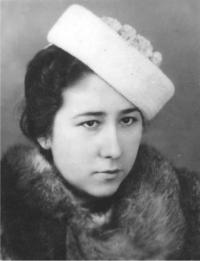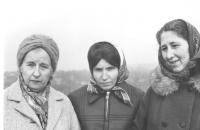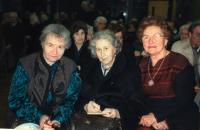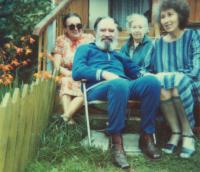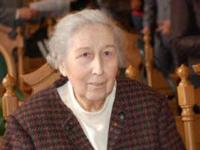“I was persuaded by our superintendent, ‘Come, everything has been decided. You will only have to sign some documents – and you will be free’. I did not go. I was stubborn enough to serve my sentence until the very end… I was already imprisoned for 23 years, so I didn’t mind spending another 2 years behind the bars”

Download image
Dariya Husyak (pseudonym “Nusya”) was born on February 4th, 1924, in the town of Truskavets, Lviv province (now Lviv region). She studied at an elementary school until 1939. During the years of the Nazi occupation she gained education at a trade gymnasium in the town of Drohobych; Dariya graduated from the gymnasium in 1943. Until the coming of the “second Soviets” she worked as an accountant-assistant in Truskavets. During 1941-1943 she actively cooperated with the Organization of Ukrainian Nationalists. In 1947 Dariya avoided arrest and started working illegally. She was assigned by Kateryna Zarytska (pseudonym “Moneta”), who was a messenger of the Commander-in-Chief of the Ukrainian Insurgent Army Roman Shukhevych (pseudonym “Taras Chuprynka”), to organize a hiding hut in the village of Hrimne, Komarno district, Lviv region, where she started to live “legally” using fake documents. Leader of the Ukrainian Insurgent Army “Chuprynka” resided in the hiding hut for three weeks of the winter of 1947. In 1948 Dariya Husyak became a messenger of Shukhevych. Dariya was arrested on March 2, 1950, and she was kept in the prison “on Lontskoho Street” in Lviv for a year. For further interrogation she was transferred to a prison in Kyiv, where she was also kept for a year. According to the decision of the Special council of the Ministry of the State Security of the USSR, Dariya was sentenced according to the article 54-1 “a”, 54-11 of the Criminal Codex of the Ukrainian SSR (“treason”, “participation in a counter-revolutionary organization”) to 25 years of imprisonment. Dariya served her sentence in prisons of Verkhnyouralsk and Volodymyr. In 1969, at the request of the global community, imprisonment was replaced by forced labor camps. Later Dariya was transferred to a camp in Mordoviya. She was released in March of 1975. Dariya did not receive a permission to come back to Galicia. She settled in the town of Volochysk, Khmelnytsk region, with a friend from the underground Kateryna Zarytska. Dariya worked at a tailor’s workshop. Since 1995 she lives in Lviv. Dariya Husyak is one of the founders of the All-Ukrainian League of Ukrainian Women, member of the Leadership of the Congress of Ukrainian Nationalists, and an active member of the community.
